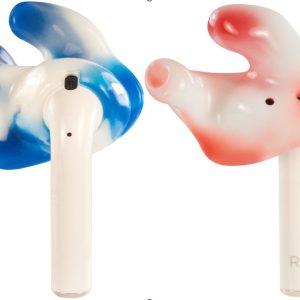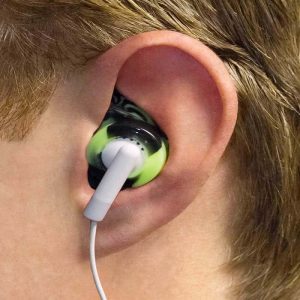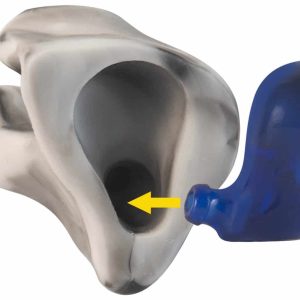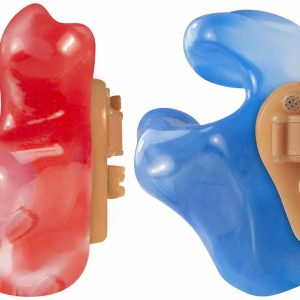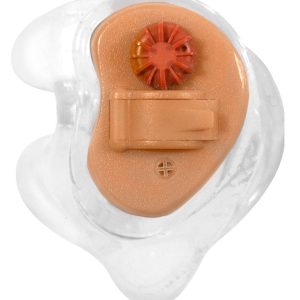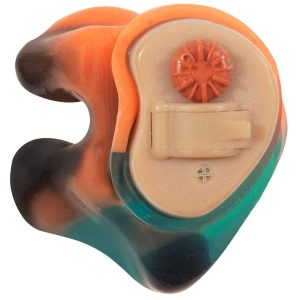- 800.525.2690
- [email protected]
- Mon - Fri: 8:00 - 4:30
Using Earphones For Hearing Protection? Read This
Are AirPods and similar devices safe for your hearing?
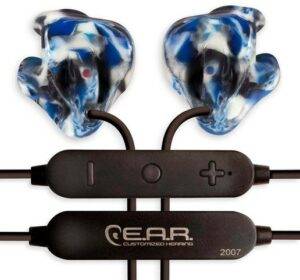
 By: Garry Gordon, MS, Audiologist/Instructor
By: Garry Gordon, MS, Audiologist/Instructor
According to U.S. News and World Report, statistics from the National Health Interview Survey show that from 1971 to 1990 hearing problems among young people ages 45 to 65 shot up 26 percent, and among those ages 18-44 they grew by 17 percent. Another study conducted in Alameda County, California over a period of three decades indicated hearing loss for men between the ages of 50 – 59 leapt by more than 150 percent. And finally a study conducted by E.A.R. Inc. encompassing 852 recreational shooters discovered an overall average of 47% admitting to noticeable hearing loss.
New Problem For Industrial and Recreational Accounts
Numerous articles and educational seminars have emphasized the need for adequate hearing protection in industrial safety. This includes the use of custom ear molds, solid ear plugs, electronic ear plugs, electronic muffs, filtered plugs and protection that enables the end user to listen to music or radio communications. 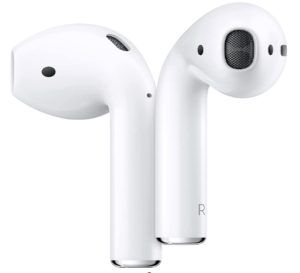 As a result of the latter option, a new problem has recently appeared for both industrial and recreational accounts when using Air-Pod or similar devices for protection. What needs be noted is simply the fact that the majority of these items were not manufactured nor marketed as hearing protectors. Even those that employ noise cancellation are misleading, since they don’t provide the amount of attenuation required for impact noise.Continuous use of such items without proper modifications can significantly increase the risk for developing a permanent noise induced hearing loss. Not good nor necessary!
As a result of the latter option, a new problem has recently appeared for both industrial and recreational accounts when using Air-Pod or similar devices for protection. What needs be noted is simply the fact that the majority of these items were not manufactured nor marketed as hearing protectors. Even those that employ noise cancellation are misleading, since they don’t provide the amount of attenuation required for impact noise.Continuous use of such items without proper modifications can significantly increase the risk for developing a permanent noise induced hearing loss. Not good nor necessary!
Possible Solutions
Possible modifications include the replacement of ear tips with a non-vented custom mold or certified foam or silicone tips with acceptable noise reduction ratings (NRR). When properly inserted they will provide adequate attenuation to dampen background sounds and allow the end user to hear better without increasing the intensity of sound coming through the ear piece. Even with this consideration it is imperative to understand that many these devices can produce sound pressures that exceed safe limits and should not be worn at maximum intensity. Other considerations might include the addition of certified filters or seeking ear pieces that are programed by the manufacturer with outputs that don’t exceed safe levels. Remember: devices that include noise cancelation work best for continuous sound not impact.
Conclusion
There are numerous options available that meet or exceed OSHA requirements for hearing protection. 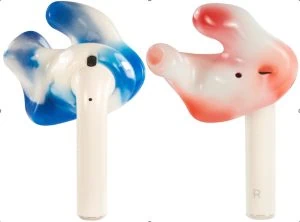 If these suggested options are not selected other options for listening to music and communication are available. Should the end user prefer Air-Pod type configurations modifications will be necessary. Look for providers who will take the time to answer questions and provide solutions for the absolute best in hearing protection that can be used for occupational and non-occupational activities.
If these suggested options are not selected other options for listening to music and communication are available. Should the end user prefer Air-Pod type configurations modifications will be necessary. Look for providers who will take the time to answer questions and provide solutions for the absolute best in hearing protection that can be used for occupational and non-occupational activities.

